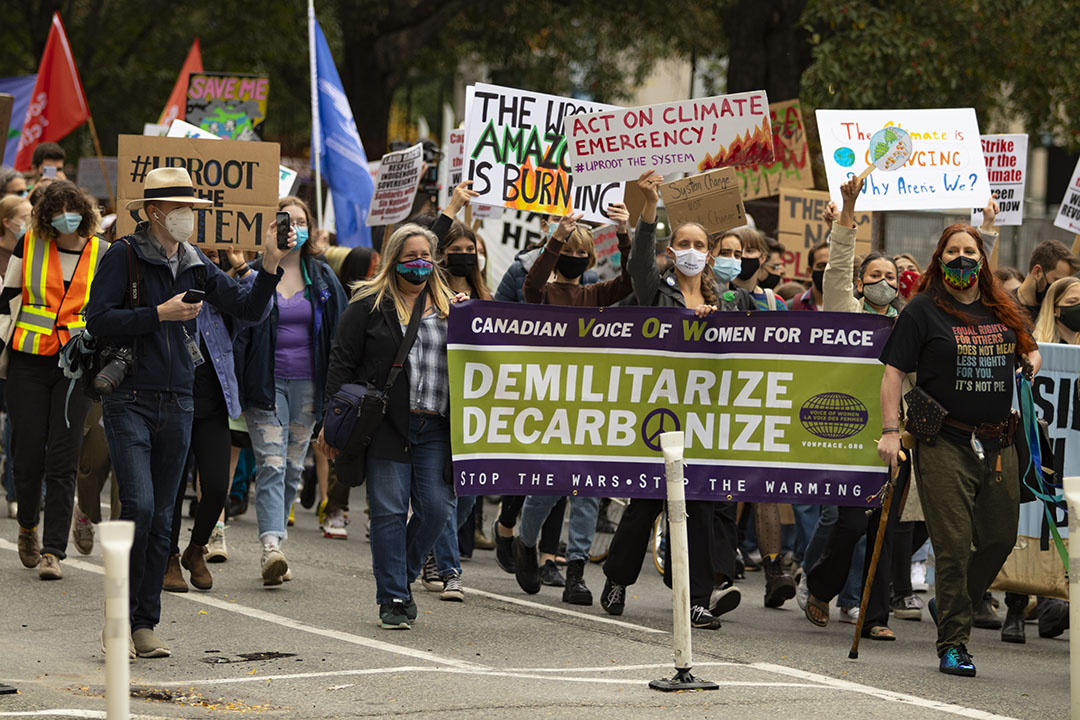On October 22, environmental activists around the world staged climate protests, urging their governments to take action ahead of the UN Climate Change Conference of the Parties, which begins on October 31.
Contrary to popular belief, protesting on the street does not always lead to immediate political changes. Rather than having an explicit effect, the impacts of protests are mostly indirect. Regardless, the social impact of protests can provide inspiration to those who feel hopeless. Additionally, protests can serve to remind the public of what they need to be fighting for.
Bureaucratic barriers
Although climate protests were created to inform government officials about the environmental concerns of citizens, their effectiveness is curbed by a divided bureaucratic system. A 2020 Washington State University study on the effectiveness of climate protests concluded that current democratic systems can limit their ability to enact political change.
Specifically, the study found that protests “increase support from the public for the climate movement, with the effect isolated to Democrats and Independents who believe in anthropogenic climate change.” Protests do not affect Republicans, so protests merely attract support from groups with already similar beliefs.
With this in mind, it may seem as though protests are pointless if they cannot facilitate a unified approach to the global issue that is climate change.
However, because of a seemingly unchanging political approach to climate change, many U of T students are attending protests for more moralistic than practical reasons. In fact, Joshua Bienstock, a student at U of T, wrote that they have no faith in “the liberal democratic capitalist system” but still attend protests because it “enables what little hope [they] have.”
Bottom of the political totem pole
A 2014 Princeton study concluded that protests are rarely successful, as economic elites wield more power over political outcomes than ordinary citizens. Hence, our ability to directly fight the climate crisis through protests is considerably weak, and many activists are aware of the futility of their actions. Yet, in light of the seemingly unproductive nature of climate protests in the face of a divided political system, why do people continue to protest? Surely, there must be a reason as to why the practice of protesting has survived into the 21st century.
In a written interview with The Varsity, Simon Appolloni — a sessional lecturer in the Environment Studies department at U of T — claimed, “protests alone cannot achieve change, but no one action can.” To this degree, protesters are aware of their weakness at the bottom of the political totem pole. However, they are equally aware of their access to more politically influential parts of the pole.
In another written interview with The Varsity, John Robinson — a professor at U of T’s Munk School of Global Affairs and Public Policy and the presidential advisor on the environment, climate change, and sustainability — wrote that while protests are crucial, they “[need] eventually to be supplemented by other kinds of activity.” Specifically, Robinson stressed the fact that protests “[help] to create a growing shift in public opinion, which in turn leads to more research.”
To this degree, although protestors are unable to access the executive power needed to make significant changes to the capitalist forces that work against them, they still have enough political reach to motivate the actors closer to the top of the base — namely, scientists.
Given the existence of initiatives such as Science Meets Parliament — an event joining scientists and policymakers — the relationship between protesters and the scientific community is one better fostered than lost. After all, a weak link is still a link.
Movements of inspiration
However, despite the indirect benefits of protests, a lack of immediate change during what is an urgent environmental crisis can demotivate students from continuing to protest. Bienstock noted that “[the] liberal state has done a great job at placating enough of the population for it not to feel immediately necessary.”
In this vein, the popularity of protesting must also be motivated by intersocial as well as pragmatic reasons.
According to a 2019 study, protests enhance public participation in social movements by “increasing perceived collective efficacy.” To elaborate, people protest because it essentially perpetuates an idealized notion that the public has the ability to directly influence the decisions of their executive leaders. Put simply, this idealized notion is what motivates others to join in protesting.
However, just because the concept that protests can impact political decisions is an idealized notion does not mean that the desire to incite direct change is any less important. As Appolloni wrote, “[protests] are important movements of inspiration.” After all, that same 2019 study noted that protests also “[diminish] negative impressions of marchers among the general public.” Protests activate an activist mentality, even among climate crisis skeptics.
To elaborate on Appolloni’s sentiment, despite the fact that protests rarely spark immediate political change, they are still influential in that they can recultivate the public’s stance on the climate crisis.
Additionally, protests are effective in that they can socialize a new generation of eco-conscious political actors. In a written interview with The Varsity, Iben Janse Van Rensburg, a student at U of T, wrote that she only went to the Fridays for Future protest because her friends were going. However, she added that “it definitely sparked an activist side of me.”
All in all, while protests are unable to directly influence the decisions of executive government leaders, they provide a necessary social impact in the fight against the climate crisis. As leaders of a new generation, U of T students have a duty to keep protesting, even if it seems hopeless. Protests may not yield immediate change, but they can provide inspiration and promote community solidarity to hopefully put an end to the climate crisis for good.
Alex Levesque is a third-year sociology major at University College.


